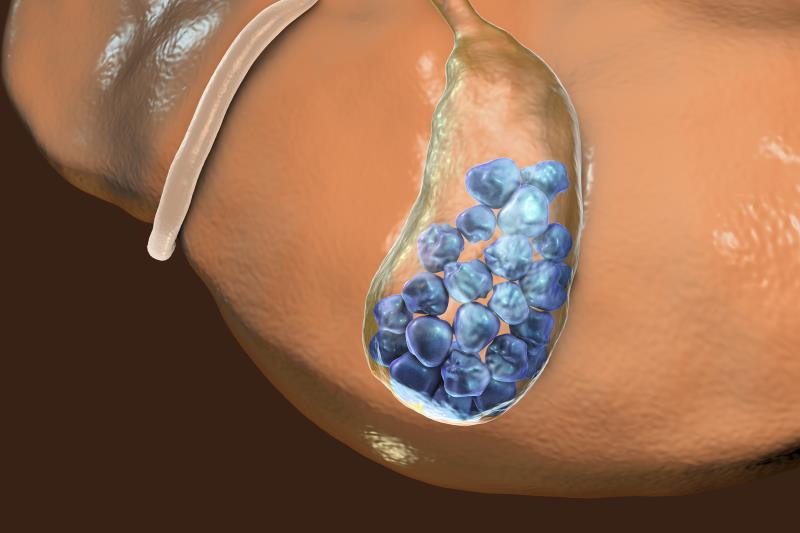
A healthy lifestyle pattern, especially maintaining a healthy weight, may lower the risk of developing symptomatic gallstone diseases, as indicated by findings from two large prospective studies.
The investigators sought to evaluate the association between an a priori defined healthy lifestyle score (HLS, including healthy diet, moderate alcohol and regular coffee intakes, never smoking, physical activity, and normal weight) and the risk of symptomatic gallstone disease, as well as to estimate the proportion of cases potentially preventable by lifestyle modification.
In total, 60,768 women from the Nurses’ Health Study (NHS) and 40,744 men from the Health Professionals Follow-up Study (HPFS), both ongoing prospective cohort studies, were followed from baseline (1986) until 2012.
Symptomatic gallstone disease was self-reported and validated via medical records review. Cox proportional hazards regression was performed to examine the association between the HLS and the risk of symptomatic gallstone disease.
Of the participants, 6,946 women and 2,513 men reported symptomatic gallstone disease during 1,156,079 and 769,287 person-years of follow-up, respectively. Comparing 6 and 0 points of the HLS, women and men showed a corresponding multivariable hazard ratio of 0.26 (95 percent confidence interval [CI], 0.15–0.45) and 0.17 (95 percent CI, 0.07–0.43).
The multivariable and mutually adjusted partial population attributable risk for individual lifestyle factors in women and men, respectively, were as follows: 33 percent and 23 percent for body mass index <25 kg/m2; 10 percent and 18 percent for ≥2 cups of coffee per day; 13 percent and 7 percent for moderate alcohol intake; 8 percent and 11 percent for a high Alternative Healthy Eating Index 2010; 9 percent and 5 percent for being physically active; and 1 percent and 5 percent for never smoking.
For all factors combined, the full population attributable risk percentage was 62 percent for women and 74 percent for men.